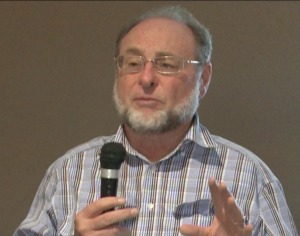By Vasinatta Yama – EM TV News, Port Moresby
More than 2.7 million people are currently affected by the current El Nino period.
A visiting consultant presented this news from the Australian National University, during a workshop held by the National Disaster Centre in Port Moresby today.
Findings also showed that those areas that were greatly affected by the drought in 1997 are affected again.
National Disaster Centre confirmed that they are still supplying relief goods.
Currently, the drought impact categories are changing from category three to categories four and five.
Category three is; Conditions are difficult, with food reduced and some famine food being eaten, and water available only at a distance.
Category four is; No food in the gardens, famine food only being eaten, increasing sicknesses, causing the lives of some children and old people at risk.
Category five is; Extreme situation, only famine food available and water shortage, many people ill, small children and old people seriously at risk.
Dr. Mike Bourke, from the Australian National University conducted his own research extensively throughout PNG, and found that there is an increase in skin and internal disease.
Most parts of the highlands region are facing food shortage, while in the coastal region, they are facing water shortage.
Remote areas are mostly impacted. People are eating wild yams, banana corm, green pawpaw, coconut, and green leafs to survive.
In some parts of Western Province, especially in Telefomin, people are eating traditional edible clay to stop hunger.
K50 million has been given to the disaster centre to address this issue.
So far 2,572 tonnes of food supplies have already been distributed to the greatly affected areas, especially in the Highlands region, Western Province, and Goilala in Central Province.
Some other affected areas have relief supplies distributed by there Provincial and Local Level government.
Meanwhile, the agriculture and livestock department is finalising a food security policy to be implemented next year, to address the dry spell.
The Health Department is also working on a nutrition policy.
The workshop held today was to get a collective view from churches and partners, so that a roadmap will be created to address the dry spell.
https://youtube.com/watch?v=xd0kqeNu5aA%3Ffeature%3Doembed%26wmode%3Dopaque%26showinfo%3D0%26showsearch%3D0%26rel%3D0


